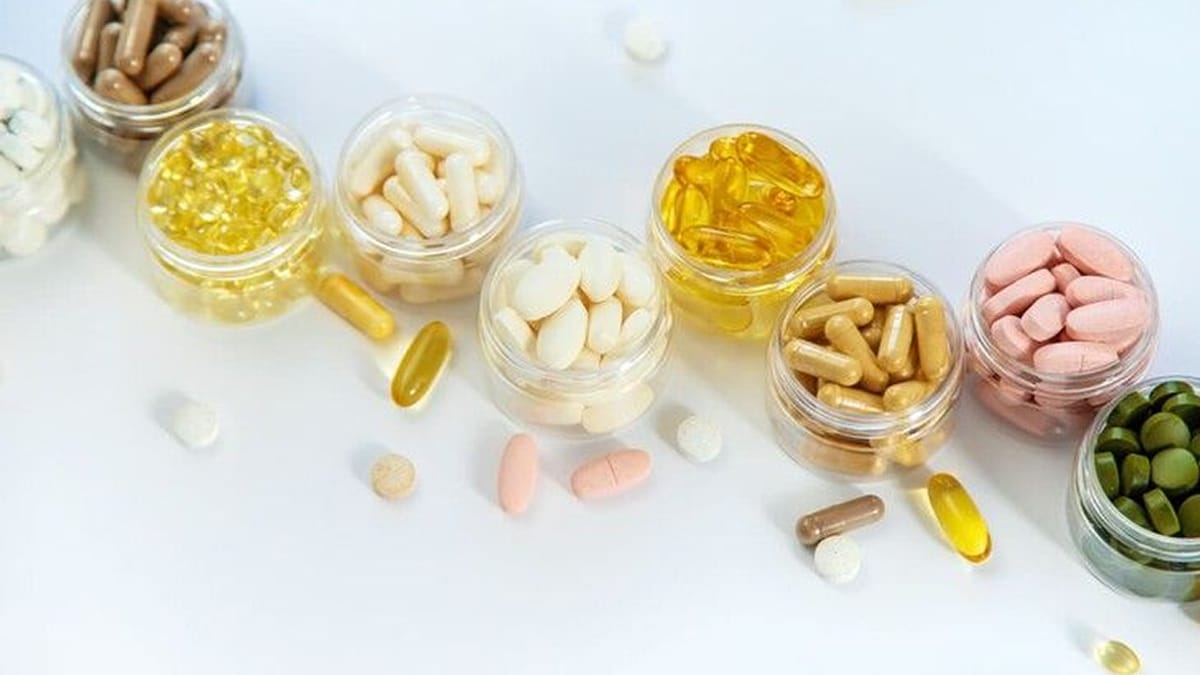8 Proven Ingredients in Weight Loss Supplements You Should Know
If you’ve ever wondered which weight loss supplement ingredients are actually supported by science, you’re not alone. With so many pills and powders on the market, it’s easy to waste money or even risk your health. In this article, you’ll discover eight proven ingredients that repeatedly show up in medical research for their ability to support fat loss, metabolism, appetite control, and energy – and you’ll learn how to use them safely to maximize results.
8 Proven Ingredients in Weight Loss Supplements You Should Know
Knowing what works (and what doesn’t) is the fastest way to avoid disappointment, protect your body from harm, and achieve your goals without falling for marketing hype. Below, we break down each ingredient, the evidence behind it, how it works, and key safety tips.

Why Understanding Ingredients Matters Before You Buy
The supplement industry in the US is worth billions and is loosely regulated. Many formulas hide behind “proprietary blends” or use dosages far below what research supports. By recognizing the top evidence-backed ingredients, you can choose products with confidence and avoid dangerous fillers or stimulants.
1. Green Tea Extract (EGCG) – Metabolism Booster Backed by Research
Green tea extract, rich in catechins (especially epigallocatechin gallate or EGCG), is one of the most studied natural compounds for weight control. Studies published in The American Journal of Clinical Nutrition show that EGCG combined with moderate caffeine can increase thermogenesis – your body’s calorie burning at rest – by 4–8% for several hours. That may sound small, but over weeks it adds up.
Benefits: Enhanced fat oxidation, modest appetite suppression, antioxidant support.
Safety Tips: Look for standardized extracts with at least 200–400 mg EGCG per serving. Avoid high doses on an empty stomach, which may irritate the liver in sensitive people.
2. Caffeine – The Classic Performance & Calorie Burner
Caffeine is not only in coffee but also in many weight loss supplements because it boosts alertness, energy expenditure and exercise performance. A meta-analysis in Sports Medicine confirms caffeine increases fat oxidation during exercise by 10–29%.
Benefits: Increased metabolic rate, reduced perceived effort during workouts, appetite control.
Safety Tips: Keep total caffeine under 400 mg per day (the FDA’s upper safe limit for healthy adults). Too much can trigger anxiety, insomnia, or heart palpitations.
3. Glucomannan – The Soluble Fiber for Satiety
Derived from the konjac root, glucomannan is a water-soluble fiber that swells in the stomach, making you feel full and slowing the absorption of nutrients. Randomized controlled trials (e.g. International Journal of Obesity) show that 3 g/day before meals can help overweight adults lose 2–4 pounds over 8 weeks without other changes.
Benefits: Reduces hunger, supports healthy blood sugar, improves bowel regularity.
Safety Tips: Always take with at least 8–10 ounces of water to prevent choking or intestinal blockage. Start with small doses to avoid bloating.
4. Garcinia Cambogia (HCA) – Mixed Evidence But Promising in Some Cases
This tropical fruit contains hydroxycitric acid (HCA), which may block an enzyme involved in fat storage and increase serotonin. Some studies show modest weight loss (about 2 pounds more than placebo over 12 weeks), though results vary widely.
Benefits: Possible appetite suppression, reduced fat storage.
Safety Tips: Choose products standardized to 50–60% HCA and avoid extremely high doses or blends with unknown stimulants. People with liver conditions should be cautious.
5. Capsaicin (Cayenne Pepper Extract) – Turn Up the Thermostat
Capsaicin, the compound that gives chili peppers their heat, can slightly increase calorie burning and fat oxidation. A study in Appetite found that participants who consumed capsaicin burned 50 extra calories per day and ate fewer calories at subsequent meals.
Benefits: Modest thermogenesis, improved satiety, possible support for lipid metabolism.
Safety Tips: Start with low doses to assess tolerance; high doses can cause stomach upset or heartburn.
6. Probiotics (Certain Strains) – Gut Microbiome and Weight
Emerging evidence links gut bacteria to body weight. Specific strains like Lactobacillus gasseri, Lactobacillus rhamnosus, and Bifidobacterium breve have been studied for their potential to reduce belly fat or support metabolic health. A clinical trial in British Journal of Nutrition showed L. gasseri supplementation reduced abdominal fat mass by 8.5% over 12 weeks.
Benefits: May improve fat distribution, reduce inflammation, support digestion.
Safety Tips: Effects are strain-specific. Look for supplements with clinically tested strains and adequate CFU counts.
7. CLA (Conjugated Linoleic Acid) – Body Composition Support
CLA is a fatty acid found naturally in meat and dairy that may help reduce body fat and preserve lean muscle. Some human studies show small but significant fat loss over 6–12 months with 3–6 g/day.
Benefits: May improve body composition, preserve muscle during dieting.
Safety Tips: Some people experience mild digestive upset. Choose products from reputable companies that test for purity.
8. Protein Powders (Whey, Pea, Collagen) – The Unsung Hero
While technically not “fat burners,” high-quality protein supplements help control appetite, maintain lean muscle and boost metabolic rate. Replacing high-calorie snacks with a protein shake can create a calorie deficit effortlessly.
Benefits: Increased satiety, preserved metabolism, improved recovery from workouts.
Safety Tips: Look for low-sugar formulas with at least 20–25 g protein per serving. People with kidney disease should consult a doctor before increasing protein intake.
How to Combine These Ingredients Safely
Many supplements blend several of the above ingredients for synergistic effects, but that also increases the risk of overdosing stimulants or getting ineffective dosages. Always check the label, research each ingredient, and start with one supplement at a time to assess tolerance.
Frequently Asked Questions
What is the most effective natural weight loss supplement?
Green tea extract with moderate caffeine remains one of the most researched and consistently effective natural options for boosting fat oxidation safely.
Can I take multiple weight loss supplements together?
Yes, but only after verifying each ingredient and dosage. Combining several stimulants (like caffeine and synephrine) can raise heart rate and blood pressure dangerously.
Are these ingredients safe for people with medical conditions?
People with heart, liver, kidney, or gastrointestinal conditions should consult their healthcare provider before starting any supplement.
How long does it take to see results?
Most studies show modest weight changes over 8–12 weeks when combined with diet and exercise. Supplements are not a magic pill but a supportive tool.
What’s the best time of day to take these supplements?
Stimulant-based supplements are usually best in the morning or before workouts to avoid insomnia. Fiber-based ones like glucomannan are taken before meals with water.
Are there any reputable products with these ingredients?
Look for formulas that clearly list dosages of EGCG, glucomannan, or CLA, use clinically studied strains of probiotics, and have third-party testing.
Practical Tips to Avoid Pitfalls
Always read labels for dosages and hidden stimulants.
Start with one ingredient at a time to monitor effects.
Combine supplements with a calorie-controlled diet and regular exercise.
Hydrate well, especially with fiber-based products.
Track your progress in a journal to see what actually works for you.
Final Thoughts – 5–7 Tips for Using Proven Ingredients Wisely
Prioritize lifestyle first: supplements enhance but don’t replace a healthy diet and activity.
Choose single-ingredient products over “mystery blends” to ensure proper dosing.
Stick with evidence-backed dosages; more is not always better and may be harmful.
Give each ingredient at least 8–12 weeks before judging effectiveness.
Consult your healthcare provider if you have underlying conditions or take medication.
Buy from reputable companies with third-party testing for purity.
Keep expectations realistic: think “support” not “miracle cure.”
Reference & Additional Reading
Inspired by studies and insights from:
www.health.harvard.edu
www.menshealth.com
www.healthline.com
www.womenshealthmag.com
www.ncbi.nlm.nih.gov
www.webmd.com
www.medlineplus.gov
www.tridenttech.edu
www.burnexia.com


